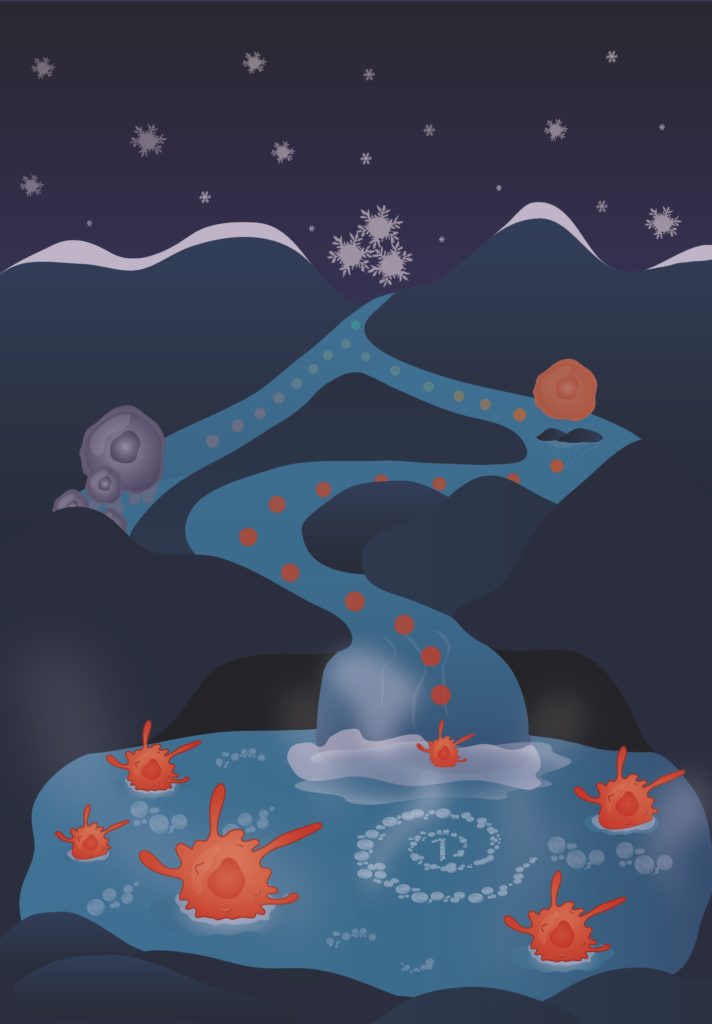News

Encoding Human Dendritic Cell Fate

PU.1, IRF8, and BATF3 cooperation and role in inflammatory signaling during programming of human cDC1-like cells was uncovered at the Pereira Lab.
The study published in Science Immunology employs single-cell analysis during human dendritic cell reprogramming mediated by transcription factors, highlighting pathways associated with successful and unsuccessful reprogramming. The cooperation of the 3 transcription factors set in motion gradual reprogramming of somatic cells to DCs, providing a tractable system to study human cDC1 specification and function.
The illustration of the study, a work by Pereira Lab PhD student Inês Caiado, illustrates how single cells flow from a “cold” non-immunogenic cell state into an unsuccessful reprogramming course (blocked by mountains) or into a successful reprogramming path (ending in waterfall). The successful path can be optimized by making the right turns leading to a “hot” immunogenic cDC1 cell fate at high efficiency – depicted by the lake with hot springs, full of reprogrammed human cDC1-like cells.
Read more: